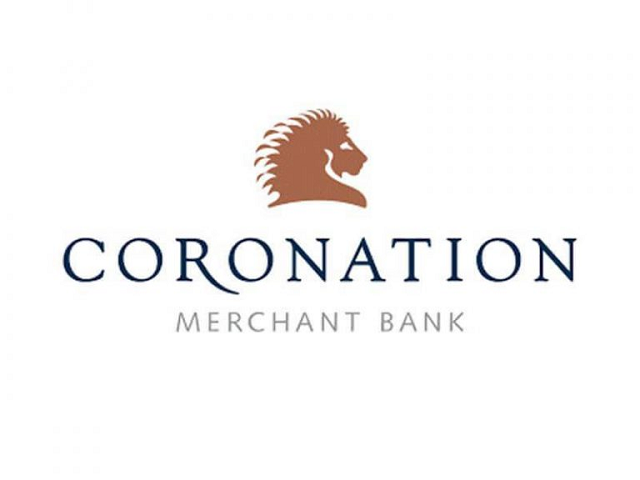A report by Coronation Merchant Bank Limited (CMB) has predicted that the ongoing recapitalization in the insurance sector will reduce the current number of companies operating in the industry from 59 to about 25.
The bank stated this in its latest report on the Nigerian insurance industry titled: “From the Lagoon to the Ocean,” which was unveiled at the weekend.
The National Insurance Commission (NAICOM) had imposed a new capital requirement for the industry, with a deadline of June 2020.
“They are likely to reduce, in our view, the number of Nigerian insurance companies from 59 to a figure around 25.
“Higher capitalisation increases underwriting capacity and the potential exists to roll-out a much bigger industry than currently exists.
“So far, Nigeria’s insurance industry has lagged its other financial services. Conditions have not been helpful for growth. Experience from other markets, particularly in Asia, suggests three remedies,” it stated.
The bank, which did a comparison between the ongoing recapitalisation in the sector with what took place in the banking sector in 2004, noted the close parallels with the then banking reform.
“The banking industry grew rapidly after that, so the question is how the insurance industry can grow after 2020. In the meantime, there will be capital raising and mergers and acquisitions (M&A),” it stated.
According to the report, Nigeria’s insurance sector presents perhaps the most remarkable investment case of any industry in Nigeria.
It noted that insurance penetration, at 0.31 percent, was extremely low, even compared with countries with similar Gross Domestic Product per capita.
“For example, India’s insurance penetration is at 3.69 percent. Experience in other countries shows that in the right conditions, insurance can be rolled out to India’s level in eight to 10 years.
“So, Nigeria could go from 0.31 percent penetration to 3.69 percent penetration in 10 years.
“Is this far-fetched? Note that our investment case does not require Nigeria to become any richer. A 10-fold increase in real terms over 10 years means a real-term compound annual growth rate (CAGR) of 25.9 percent. Nigeria has seen this happen before.
“This is the same CAGR achieved in gross customer loans by Nigeria’s banks (actually, 27.9 percent) in the five years after the banking reform of 2004.
“To take a more modest and recent example, the real-term CAGR for total assets under management in Nigeria’s pension funds was 9.8 per cent 2008-18, or 155 per cent growth in real terms over 10 years.
“Nigeria is no stranger to financial services development,” it stated.
The report added that the banking reforms of 2004 imposed steep new capital requirements and reduced the number of banks from 89 to 25.
Therefore, it predicted that insurance reforms in 2019, and due for implementation by June 2020, also imposes steep new capital requirements.
Shedding more light on the report, Head, Coronation Research, Guy Czartoryski, said the Nigeria’s insurance industry had not shared in the growth experienced by other Nigerian financial services, notably banks, pension funds and mutual funds.
He stressed that the sector has hardly grown in real terms over 10 years, adding that without scale, the industry suffers from poor returns on equity.
“Yet its smallness is also its opportunity.
If it were to grow to the level reached by countries with similar GDP per capita, it might grow by a factor of 10 times in real terms in eight-to-10 years.
“The technological infrastructure and data necessary for expansion are largely available.
“Lessons learned in Asian markets, and also in West Africa, show how insurance can be rolled out to tens of millions of customers. Cooperation between regulators is critical, as are distribution partnerships with banks and telecom companies.
“Fresh capital is necessary for development, but a fresh strategic approach is required to reach the industry’s potential,” Czartoryski added.
Commenting on development in the industry, the President, Nigeria Council of Registered Insurance Brokers (NCRIB), Mr. Shola Tinubu, advised operators to embrace mergers, and bring up new ideas and solutions to their operations.
Tinubu, who is also the Managing Director, Scib Insurance Brokers, spoke in a telephone interview with THISDAY.
According to Tinubu, not more than 50 per cent of the existing firms would scale the reform.
According to him, already, discussions on mergers were ongoing among the firms for possible mergers.
“Some of them do not want their merger talks to leak now so that it will not fail,” he added.
Tinubu, stressed that any company that does not meet the new capital requirement would lose its licence.
But the Managing Director, Senforce Insurance Brokers, Mr. Felix Epebinu, said the problem with recapitalisation in Nigerian insurance sector was always the short notice given to the operators to raise capital.












